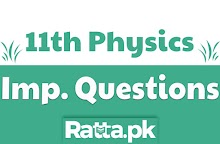1) Preface
The Supreme Court is the highest court of Pakistan. It is both a constitutional and
ordinary court of law. All decisions of Supreme Court of Pakistan are binding to all the
courts of Pakistan. The Principle seat of Supreme Court is in Islamabad.
In its modern composition, the Supreme Court is incorporated of Chief Justice of
Pakistan, sixteenth justices and two on ad-hoc whose appointment is confirmed by
the President with the approval of Prime Minister of Pakistan.
2) Relay Articles
Article 176 to 1913) Composition of Supreme Court
The Constitution of Islamic Republic of Pakistan under Article 176 throws light on thenumber of Judges of the Supreme Court of Pakistan shall be determined by an Act of
Parliament. In the light of this provision “The Supreme Court (Number of Judges) Act,
1997” has determined that the number of the Judges of the Supreme Court of Pakistan
other than the Chief Justice shall be sixteen. A person with five years’ experience as a
Judge of High Court or 15 years’ experience as advocate of High Court is eligible to be
appointed as a Judge of the Supreme Court. The Chief Justice of Pakistan and each of
other judges of the Supreme Court shall be appointed by the President in accordance
with Article 175A, inserted through 18th and 19th Constitutional amendments.
4) Chief Justice of Supreme Court
The Chief Justice of Pakistan (initials as CJP) is the head of the courtsystem of Pakistan(the judicature branch of government) and the chief judge of
the Supreme Court of Pakistan. The Chief Justice is one of the most senior of 17 Senior
Justices of the Supreme Court of Pakistan. From 1947 until 1960, the chief justice
and justices were known as Federal Judge.
5) Qualifications for judges
Following are the qualifications of a person to be elected as a judge of Supreme Court ofPakistan.
Person should be a citizen of Pakistan.
He is serving as judge in High Court for at least five (5) years.
He is serving as an advocate in High Court for at least fifteen (15) years.
6) Oath of office
Before entering in the office the Chief Justice shall take oath of his office before thepresident of Pakistan and other judges shall take oath of their office before the Chief
Justice of Pakistan.
7) Appointments of judges
The chief justice shall be appointed by the president while the other judges shall beappointed by the chief justice after consultation with the president.
8) Retiring age
The age of retirement for the judge of the Supreme Court of Pakistan is 65 years.9) Acting chief justice
In the absence of Chief Justice the president of the Pakistan appoints the senior mostjudge to act as Chief Justice.
10) Ad-hoc judge
The chief justice of Pakistan may request the president of Pakistan to appoint thenumber of judges on temporary basis in the Supreme Court. Judge appointed on ad-hoc
shall have the same powers and jurisdiction as the other judges of Supreme Court have.
11) Powers and functions of Supreme Court
Following are the powers and functions of the Supreme Court of Pakistan.1. Appellate jurisdiction
Appellate jurisdiction is the power of the Supreme Court to review and change thedecisions of lower courts after submission the appeal by application.
2. Original jurisdiction
The original jurisdiction of a court is the power to hear a case for the first time and courtenforces the fundamental rights by original jurisdiction.
3. Advisory jurisdiction
The President may seek the opinion of the Supreme Court on any question of law or factof public importance after receiving an opinion president thinks whether it is useful or
not.
4. Suo motu Jurisdiction
The Supreme Court has power for Suo Motu jurisdiction, under this jurisdiction thecourt takes notice of the matter by itself and starts judicial proceedings.
5. Revision power
The Supreme Court has power to review the judgment of any order made by it becauseit is a careful examination of the matter in order to correct or improve its decision.
6. Protection of the fundamental rights
One of the greatest functions of the Supreme Court of Pakistan is to protect the
fundamental rights of the citizens of the Pakistan.
7. To issue directions
According to Article 187 the Supreme Court has power to issue such directions whichare necessary for the administration of justice in any case which is pending before it.
8. Rules and regulations
The Supreme Court has power to enact different rules and regulations in order to run itsown business and keep the judges under control.
9. Interpretation of the constitution
The Supreme Court has power to interpret the constitution of the Islamic Republic ofPakistan. Supreme Court makes complex laws understandable by interpreting them.
10. Guardian of the constitution
The Supreme is the Guardian of the constitution and it explains and elaborates itsconstitutional status within the country.
11. Transfer of cases
The Supreme Court of Pakistan has power to transfer any case, appeal or otherproceeding pending before it in any high court and from any high court to any other
high court.
12) Binding effect of decision of supreme court
The decisions of the Supreme Court of Pakistan have binding effect on the subordinatecourts of Pakistan.
5) Preclude Remarks
To Preclude, we can say that the the Supreme Court of Pakistan is the highest court of thePakistan. It consists of chief Justice and other justice who are appointed by the
President of Pakistan on temporary and permanent basis after verification of their
eligibility criteria for selection on the seats.
You may also like:
This is the post on the topic of the Supreme Court of Pakistan, Powers of Judges - Constitutional law notes LLB. The post is tagged and categorized under in
Education News,
LLB Notes
Tags. For more content related to this post you can click on labels link.
You can give your opinion or any question you have to ask below in the comment section area. Already 9 people have commented on this post. Be the next one on the list. We will try to respond to your comment as soon as possible. Please do not spam in the comment section otherwise your comment will be deleted and IP banned.








9 comments:
Write comments